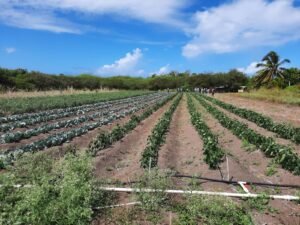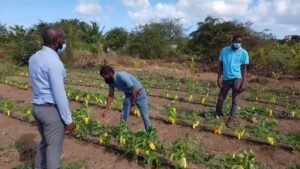Agricultural Education in Belarus: Nurturing a Sustainable Future. Agriculture has always been a vital sector in Belarus, with a rich history deeply intertwined with the nation’s cultural heritage. The country’s fertile lands, diverse climate, and favorable geographic location have provided a strong foundation for agricultural development. To harness the full potential of this sector and ensure a sustainable future, Belarus has invested significantly in agricultural education. This article delves into the landscape of agricultural education in Belarus, exploring its history, current state, and the measures being taken to nurture a resilient and forward-looking agricultural sector.
Agricultural Education in Belarus: Nurturing a Sustainable Future
Historical Perspective of Agricultural Education in Belarus:
The roots of agricultural education in Belarus can be traced back to the late 19th century, during the time of the Russian Empire. The first agricultural schools were established to address the need for skilled agronomists and to promote modern farming practices. After the establishment of the Soviet Union, agricultural education underwent significant changes, with the emphasis shifting towards collective farming methods and large-scale agricultural production.
In the post-Soviet era, as Belarus gained independence, the country’s agricultural education system underwent substantial reforms to align with global trends and address the challenges of a changing agricultural landscape.

Structure of Agricultural Education:
Today, Belarus boasts a comprehensive and well-structured agricultural education system, providing various levels of education and training in agriculture. This system encompasses both formal and non-formal education, catering to the diverse needs of aspiring agriculturists, researchers, and agricultural entrepreneurs.
1. Secondary Agricultural Education:
Secondary agricultural education is offered in specialized agricultural secondary schools and colleges. These institutions focus on equipping students with practical skills in farming, animal husbandry, horticulture, and agricultural machinery operations. Graduates from these institutions can either enter the workforce directly or pursue higher education in agriculture.
2. Higher Agricultural Education:
Belarus offers a range of higher education opportunities in agriculture through its universities and agricultural academies. Some of the most renowned agricultural institutions in the country include:
- Belarusian State Agricultural Academy (BSAA): Founded in 1921, BSAA is one of the oldest and most prestigious agricultural institutions in Belarus. It offers bachelor’s, master’s, and doctoral programs in agronomy, veterinary medicine, agricultural engineering, and economics.
- Belarusian State University of Agriculture (BSUA): Established in 1964, BSUA offers comprehensive programs in agricultural sciences, biotechnology, land management, and food technology.
- Belarusian National Technical University (BNTU): While not exclusively focused on agriculture, BNTU offers agricultural engineering programs that cater to the needs of modern agriculture, including farm machinery, precision agriculture, and agricultural automation.
3. Research and Specialized Institutes:
Belarus also houses several research institutes that play a crucial role in advancing agricultural science and technology. These institutes conduct research on crop breeding, animal husbandry, soil science, and agricultural economics. They contribute to developing innovative solutions for increasing agricultural productivity, promoting sustainable practices, and addressing emerging challenges.

4. Continuous Professional Development:
To ensure the continued growth and professional development of agricultural experts, Belarus emphasizes the importance of lifelong learning. Various training programs, workshops, and seminars are organized regularly to keep agricultural professionals abreast of the latest advancements and best practices in the industry.
Focus Areas and Challenges in Agricultural Education:
Belarusian agricultural education places a strong emphasis on practical learning, research-driven innovation, and technology adoption. Several key focus areas and challenges in agricultural education in Belarus include:
1. Sustainable Agriculture:
Given the global imperative to address climate change and ensure food security, sustainable agriculture has become a cornerstone of agricultural education in Belarus. The country prioritizes research and education on organic farming, agroecology, and sustainable resource management practices.
2. Digital Agriculture:
Belarus has been proactive in embracing digital technologies in agriculture, including precision farming, data analytics, and remote sensing. Agricultural education has integrated courses on agricultural informatics, modern farm machinery, and smart agriculture practices.
3. Rural Development:
Agricultural education in Belarus recognizes the importance of rural development and the role of agriculture in fostering rural prosperity. Programs on rural economics, entrepreneurship, and community development are designed to empower young graduates to become catalysts for positive change in rural areas.
4. International Collaboration:
Belarus places value on international collaboration and knowledge exchange in the field of agriculture. Students and faculty members are encouraged to participate in international academic and research programs to gain exposure to global agricultural practices and innovations.

Conclusion:
Agricultural education in Belarus has evolved significantly over the years, adapting to changing times and aligning with global trends. The country’s commitment to sustainable agriculture, technology adoption, and rural development ensures a resilient and prosperous agricultural sector. By nurturing a generation of skilled and forward-thinking agricultural professionals, Belarus is not only securing its own food sovereignty but also contributing to the global effort towards a sustainable and food-secure future. As the country continues to invest in agricultural education and research, it stands poised to meet the challenges of the 21st century and further elevate its position as a significant player in the global agricultural landscape.
